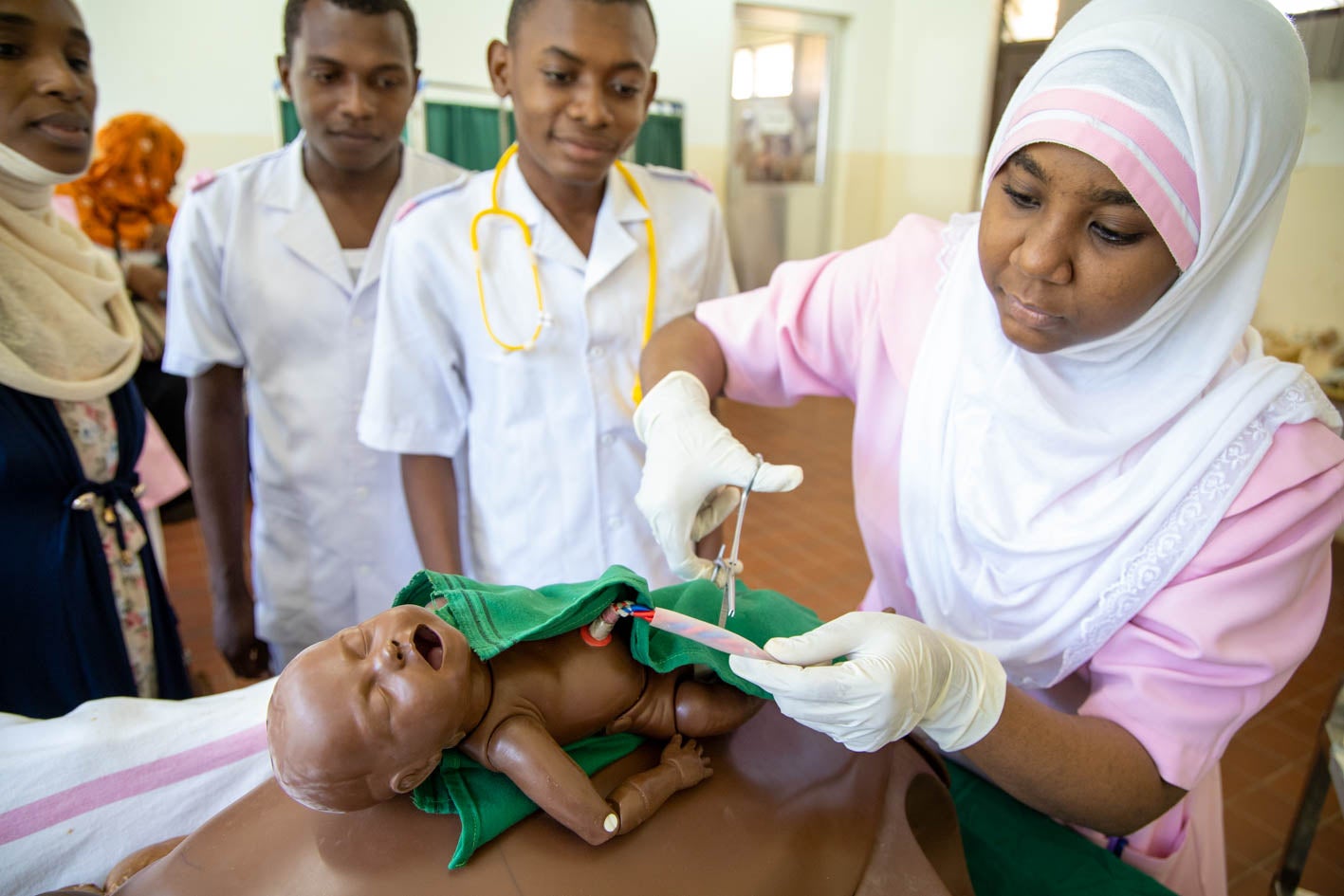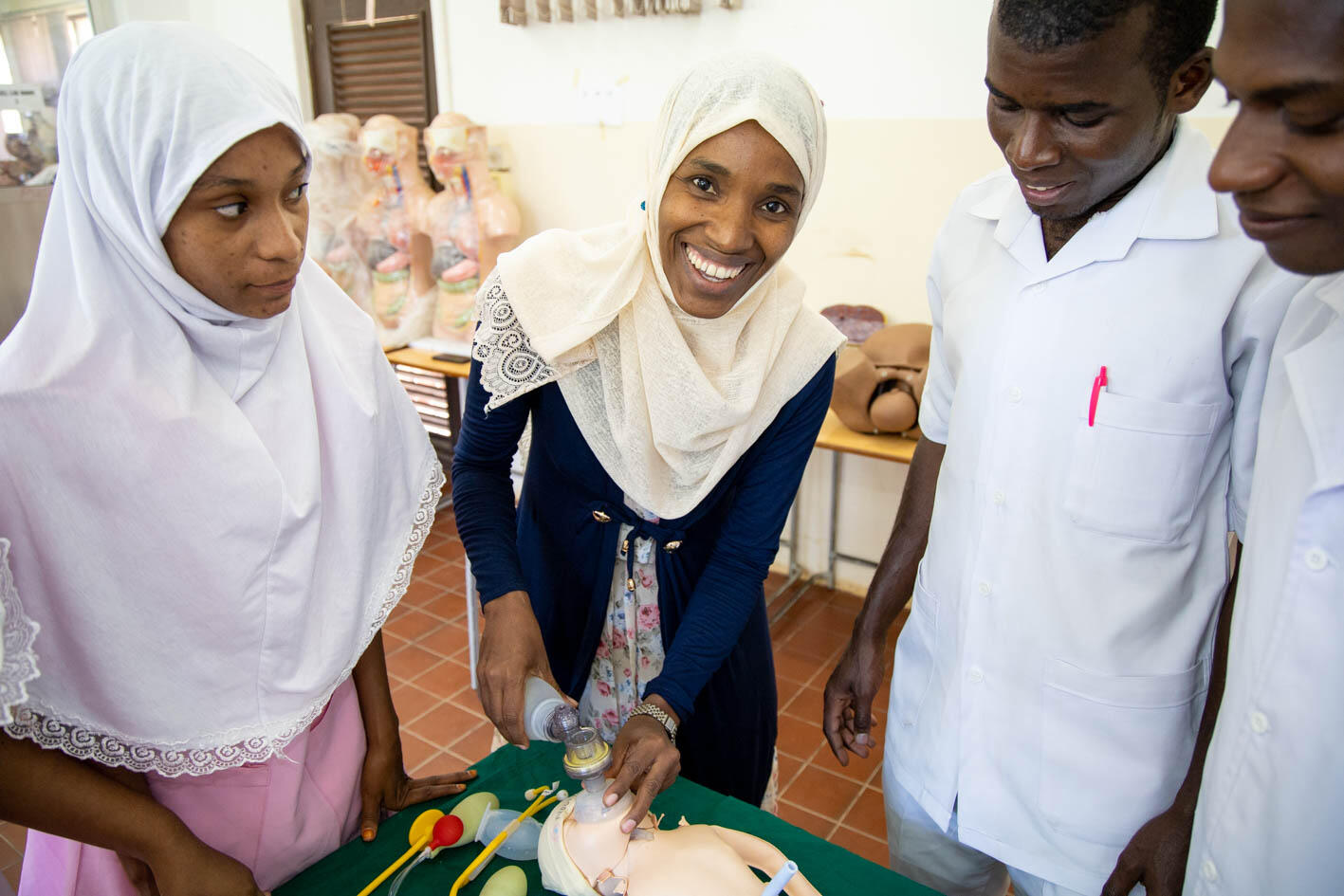For some Zanzibaris, midwifery is not just an ordinary career. It is a call to serve and save other people’s lives. Zuwena Ali Salim was one such midwife who felt this from the beginning, when she started her career at Chake Chake Hospital, Pemba Island, over 20 years ago. She wanted to be part of those who work to save the lives of women and children in Zanzibar.
Zuwena knows that she has saved many women and children’s lives in her 20 years of practice in the maternity wards at Chake Chake and then Mwembeladu and Mnazi Mmoja Hospitals in Zanzibar. But this she says is not important to her, because this is what she is expected to do as a midwife. What she remembers most, she says, is the lives of the women that have been lost while they are bringing new life into the world. “It has left scars on my heart and will remain with me for a very long time.”
Zuwena wanted to do more – and to do it better – to make motherhood safer for Zanzibari women and so she made the bold decision to take up a leadership position at the Zanzibar Midwife and Nursing Council. One of the challenges she identified was the quality of maternal and child health service provision, particularly in rural areas, so as Registrar of the Council, she put an emphasis on supportive supervision for healthcare practitioners so that they could continuously improve their skills, particularly to manage pregnancy-related complications, on-the-job, under the watchful eye of more experienced health professionals.
After building the capacity at the Council, Zuwena decided to pursue further education. She was supported by UNFPA to pursue a Master of Midwifery and Women’s Health at Muhimbili University of Health and Allied Sciences in Dar es Salaam. When she completed her studies in 2017, Zuwena returned to Zanzibar, but this time not as a midwife, but as an Assistant Lecturer at the Department of Midwifery and Nursing at the School of Health and Medical Sciences at the State University of Zanzibar.
Building a competent midwifery workforce
Today she teaches second year nursing and midwifery students, building their theoretical knowledge to deliver quality maternal and newborn health care, including emergency and newborn care, and overseeing them practicing their skills in the Skills Lab that was equipped and renovated with UNFPA’s support. Zuwena sees an average of 40 nurse-midwives pass through the school every year.

Efforts to build a competent, well-supported and well-trained midwifery workforce, however, do not end at the Midwifery School. A UNFPA-supported mentorship programme – where experienced healthcare providers share their expertise and knowledge and supervise and mentor less experienced staff – which was introduced in 2016 has now been expanded to include all nurses and doctors working at hospitals and lower health facilities across the isles. This ensures that midwives are constantly supported to improve their skills on-the-job and that pregnant women get better and higher quality care.
Today as we celebrate International Day of the Midwife, which this year coincides with the launch of the State of the World’s Midwifery Report 2021, it is an opportunity to look at the latest data on the return on investment in midwives. The evidence is clear: investments in midwives improve health outcomes for mothers and babies and reduce maternal and neonatal mortality and stillbirths; and build a workforce that can provide the full continuum of care throughout women and adolescents’ lives. But as Zuwena, with her first-hand experience as a midwife knows, investments in midwives must look at more than just numbers; education, ongoing training, regulation, and their working environment are all equally crucial. Only then, she says, will the issues of both the numbers and the quality of midwifery services be consigned to history in Zanzibar.


